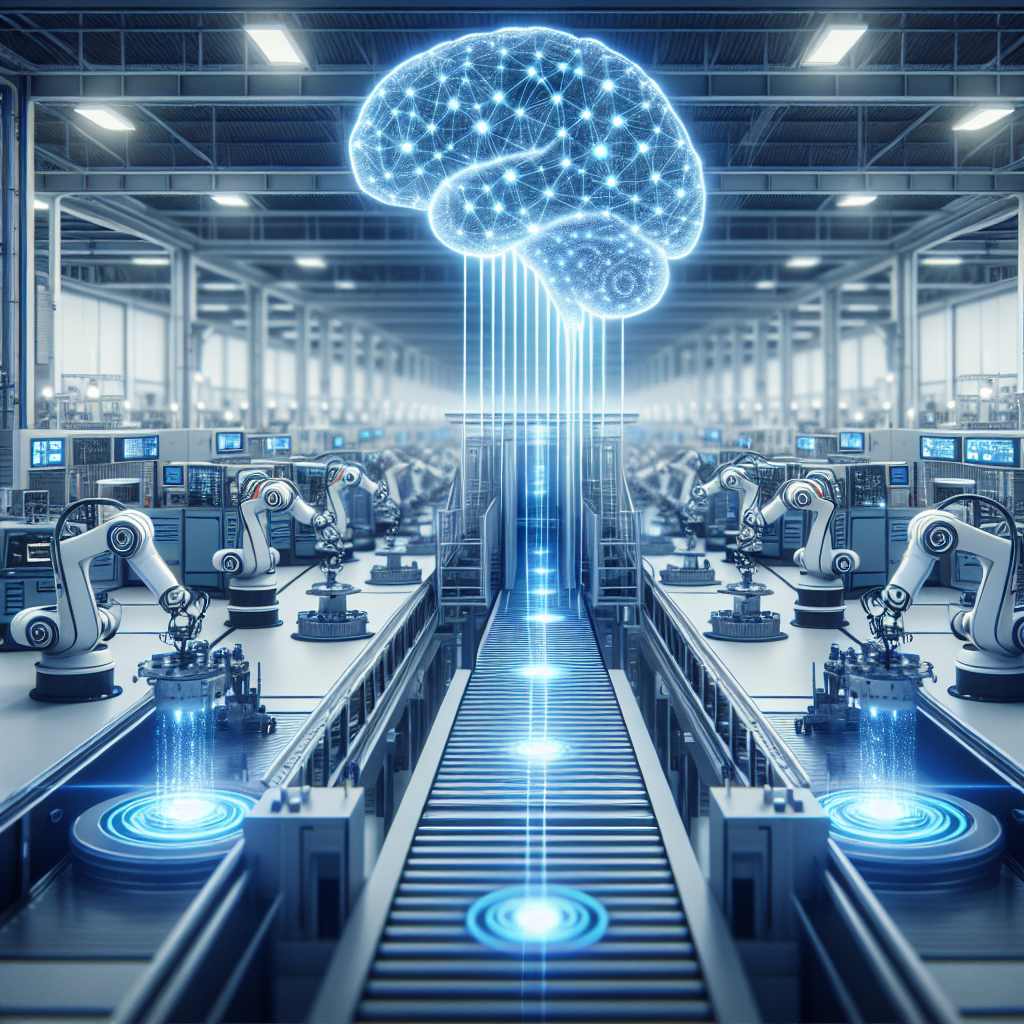The Role of AI in Digital Manufacturing
Artificial Intelligence (AI) is revolutionizing the manufacturing industry, transforming the way products are designed, produced, and delivered. AI technologies have the potential to optimize operations, increase efficiency, and improve quality in digital manufacturing processes. From predictive maintenance to automated quality control, AI is reshaping the future of manufacturing.
AI in digital manufacturing involves the use of advanced algorithms and machine learning techniques to analyze data, predict outcomes, and make decisions in real-time. These technologies enable manufacturers to harness the power of data to drive innovation and improve their competitive advantage. Here are some key ways AI is transforming digital manufacturing:
Predictive Maintenance: One of the key applications of AI in digital manufacturing is predictive maintenance. By analyzing data from sensors and equipment, AI algorithms can predict when machines are likely to fail and schedule maintenance before a breakdown occurs. This helps manufacturers avoid costly downtime and optimize their maintenance schedules.
Process Optimization: AI can analyze production data to identify inefficiencies in manufacturing processes and recommend improvements. By optimizing production processes, manufacturers can reduce waste, improve quality, and increase productivity. AI algorithms can also be used to optimize supply chain operations, inventory management, and logistics.
Quality Control: AI technologies such as computer vision and machine learning can be used to automate quality control processes in manufacturing. By analyzing images and data from sensors, AI algorithms can detect defects in products and ensure that only high-quality products are shipped to customers. This improves product quality and reduces the risk of defects reaching the market.
Supply Chain Management: AI can help manufacturers optimize their supply chains by analyzing demand forecasts, inventory levels, and production schedules. By using AI algorithms to predict demand and optimize inventory levels, manufacturers can reduce costs and improve efficiency in their supply chain operations. AI can also be used to automate procurement processes and identify potential risks in the supply chain.
Product Design: AI technologies can be used to optimize product design processes by analyzing customer preferences, market trends, and performance data. By using AI algorithms to generate design alternatives, manufacturers can rapidly iterate on product designs and bring innovative products to market faster. AI can also be used to simulate and optimize product performance, reducing the need for physical prototypes and testing.
FAQs
1. What is the role of AI in digital manufacturing?
AI plays a critical role in digital manufacturing by enabling manufacturers to optimize operations, increase efficiency, and improve quality. AI technologies such as predictive maintenance, process optimization, quality control, supply chain management, and product design are transforming the way products are designed, produced, and delivered.
2. How does AI enable predictive maintenance in digital manufacturing?
AI enables predictive maintenance in digital manufacturing by analyzing data from sensors and equipment to predict when machines are likely to fail. By scheduling maintenance before a breakdown occurs, manufacturers can avoid costly downtime and optimize their maintenance schedules.
3. How can AI be used to automate quality control in manufacturing?
AI technologies such as computer vision and machine learning can be used to automate quality control processes in manufacturing. By analyzing images and data from sensors, AI algorithms can detect defects in products and ensure that only high-quality products are shipped to customers.
4. What are the benefits of using AI in supply chain management?
AI can help manufacturers optimize their supply chains by analyzing demand forecasts, inventory levels, and production schedules. By using AI algorithms to predict demand and optimize inventory levels, manufacturers can reduce costs and improve efficiency in their supply chain operations.
5. How does AI enhance product design in manufacturing?
AI technologies can be used to optimize product design processes by analyzing customer preferences, market trends, and performance data. By using AI algorithms to generate design alternatives and simulate product performance, manufacturers can bring innovative products to market faster.
In conclusion, AI is playing a crucial role in transforming digital manufacturing by enabling manufacturers to optimize operations, increase efficiency, and improve quality. From predictive maintenance to automated quality control, AI technologies are reshaping the future of manufacturing and driving innovation in the industry. By harnessing the power of data and AI algorithms, manufacturers can stay competitive in the rapidly evolving digital manufacturing landscape.

